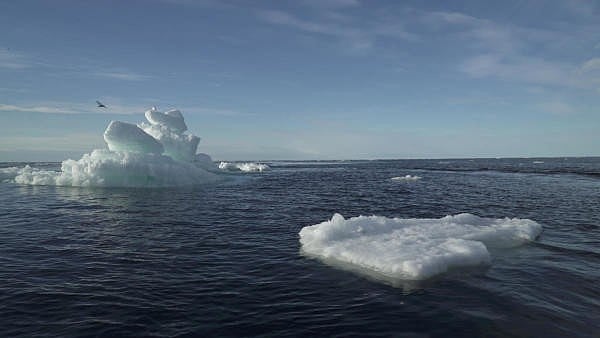
Floating ice is seen at the Arctic Ocean.
Credit: Reuters File Photo
It is safe to say that climate change is one of the biggest threats to humanity, and if we don't act soon enough, it might as well become our primary existential threat like we have so far seen in Hollywood movies.
The grave dangers and severe long-time implications of climate change and global warming is no secret. Already, we are experiencing myriad climate-related challenges across the globe, including frequent fluctuations in temperatures, extremities of weather, and a spike in climate-induced natural calamities.
Adding to the mounting concerns related to climate change, a recent study has revealed that the Arctic region may experience its first ice-free summer by 2027, according to a report by Interesting Engineering. The study further says that the Arctic Ocean and its surrounding region is losing its ice cover by an alarming rate of 12 per cent per decade because of an extremely high rate of greenhouse gas emissions.
A series of highly detrimental consequences, ranging from extreme weather patterns across the globe to the destruction of Arctic ecosystems, might result from the melting of ice in the Arctic region.
The approximate time when the Arctic region might see an ice-free day was predicted by a global team of researchers using computer models.
"The first ice-free day in the Arctic won’t change things dramatically," said Alexandra Jahn, a climatologist at the University of Colorado Boulder in the United States.
"But it will show that we’ve fundamentally altered one of the defining characteristics of the natural environment in the Arctic Ocean, which is that it is covered by sea ice and snow year-round, through greenhouse gas emissions," Jahn added.
As per scientists, the Arctic can be declared ice-free when the sea ice cover becomes less than one million square kilometers.
Céline Heuzé, attached to the University of Gothenburg in Sweden, said, "Because the first ice-free day is likely to happen earlier than the first ice-free month, we want to be prepared. It’s also important to know what events could lead to the melting of all sea ice in the Arctic Ocean."
